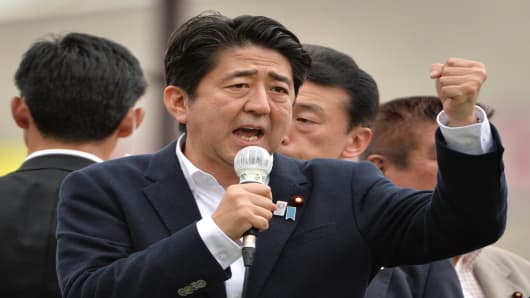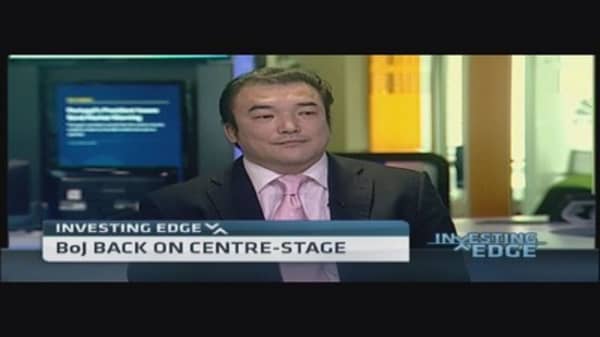If Shinzo Abe's ruling coalition wins Sunday's elections to the upper house of parliament, as predicted, Japan's prime minister will have a clear mandate to push ahead with his radical economic agenda. The only question now is will he run with it?
Opinion polls point to a clear majority for Abe's Liberal Democratic Party (LDP) and its coalition partner, the New Komeito party that would end years of parliamentary stalemate.
Even with a majority in both houses of parliament, there have been some doubts about how committed Abe is to delivering the painful reforms needed to revive long-term economic growth and take on powerful groups within the LDP. Critics say a strong election win could also make Abe complacent.
(Read More: How a big election win for Abe could defeat reforms)
One thing is clear: Once Sunday's vote is out of the way, the real test of Abe's economic policies, dubbed "Abenomics" by some, is likely to begin.
"The jury is still out on Abenomics, but what is different this time is that there are three arrows and not just one," Fuyuki Fujiwara, fund manager at Nezu Asia Capital Management, told CNBC. He referred to the "three arrows" of Abe's strategy – monetary stimulus, fiscal spending and structural reform.
Abe pledged to turnaround the economy after becoming prime minister following a solid win by the LDP in the lower house elections last December. While Japan is the world's third largest economy, it has been hampered by deflation and slipped in and out of recession in recent years.
Aggressive monetary stimulus, fiscal spending and promises for long-term reform have so far succeeded in generating a buzz in Japan and optimism about the future.
(Read More: Japan's quarterly commercial real estate sales soar 78%)
That has fueled Abe's popularity at home and put his ruling party on course to win Sunday's elections.
"People don't really believe in Japan, but what drives Abe in his second time as prime minister is that he recognizes how desperate the situation is," Ron Napier, head of Napier Investment Advisors told CNBC's "The Call" last week.
"Japan is like a swimmer in a river drowning and what Abe is saying is: 'I'm going to throw you a lifeline, please reach out for it.' And Japan has reached for it and there are risks here but the risks of not doing anything are much, much worse," he said.





